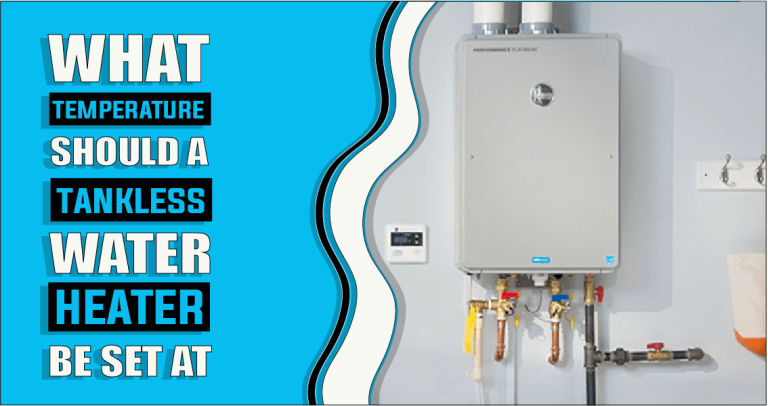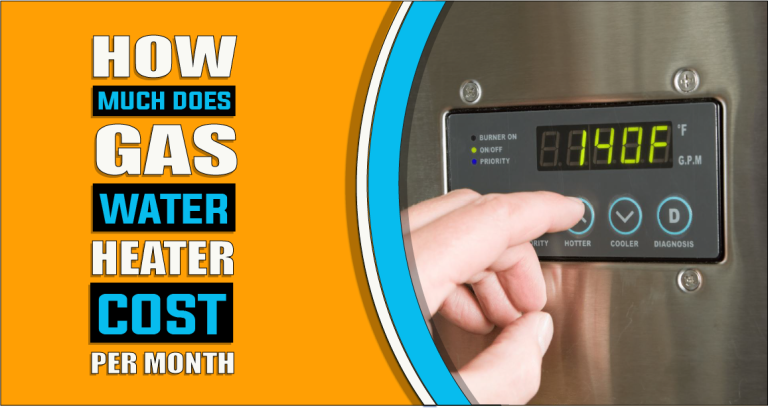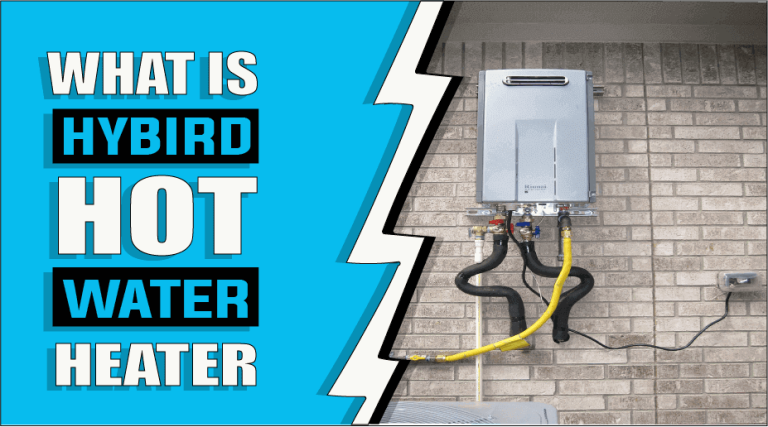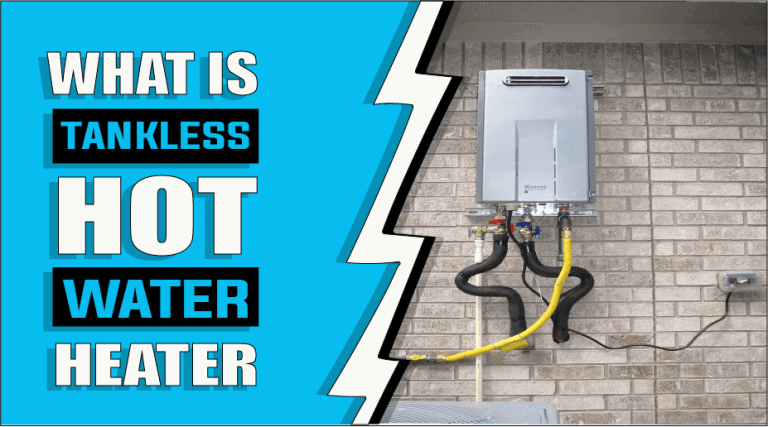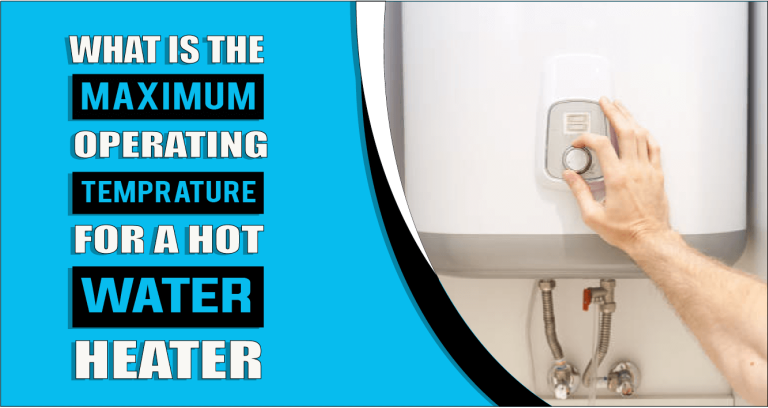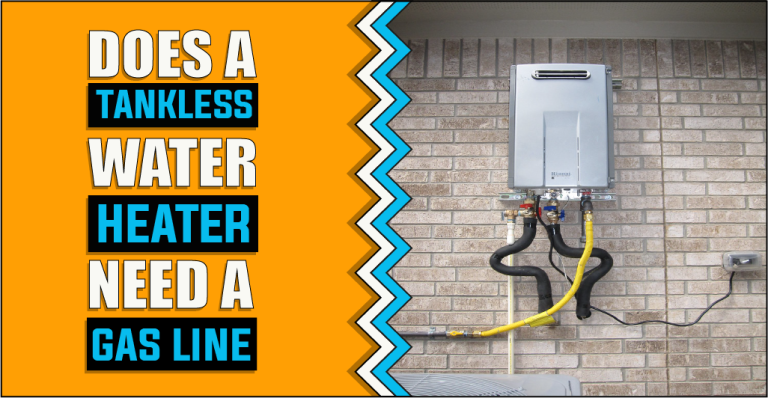What Do Tankless Water Heaters Cost | All You Need to Know
If you’re shopping for a tankless water heater, chances are you’ve already heard about the many benefits they offer. Tankless heaters provide an unlimited hot water supply and save money on energy costs over traditional storage tanks. Plus, their space-saving design allows them to be mounted directly on walls – eliminating all those bulky tanks from your basement or garage! By now, you may have created a mental picture of how amazing a tankless system would look and function in your home. But regarding finances, one of the most important questions is, “What do tankless water heaters cost?” Don’t worry! This article will explore what you can expect to pay for a tankless heater, including the initial installation and long-term operating costs. We’ll also cover factors that affect the overall cost of tankless systems and provide some tips on saving money when installing one in your home. So, If you’re ready to get an accurate estimate of what installing a tankless water heater costs and how much you can save in the long run, keep reading!
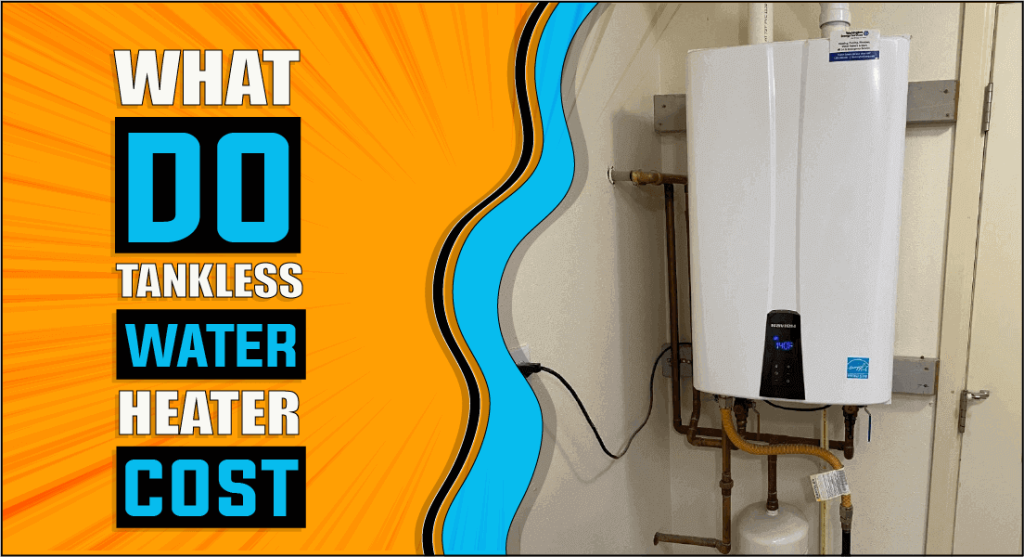
Let’s Explore What Do Tankless Water Heaters Cost?
When purchasing a tankless water heater, one of the biggest concerns for homeowners is the cost. Tankless models can come with a higher price tag than traditional water heaters. However, these types of water heaters have benefits that make them worth considering.
The average cost of a tankless water heater can range from $500 to $2,500, depending on the brand, model, and size. These initial costs may be higher than traditional tank water heaters, typically costing between $300 and $1,000. However, considering long-term savings and benefits, a tankless water heater can be more cost-effective.
One of the main benefits of a tankless water heater is its energy efficiency. These models heat water on demand rather than constantly keeping a large water tank heated. This means they use less energy, lowering utility bills over time. Additionally, tankless water heaters have a longer lifespan than traditional models, so homeowners won’t need to replace or repair them as often, saving even more money in the long run.
It’s also important to consider the type of fuel a tankless water heater uses. Electric models tend to be less expensive upfront but can have higher energy costs over time. Gas or propane tankless water heaters may have a higher initial cost but often have lower operating costs and can save money in the long term.
While tankless water heaters may have a higher initial cost, their long-term savings and benefits make them a worthwhile investment for many homeowners. They provide energy efficiency, longer lifespans, and potential utility bill savings, making them a smart choice for upgrading their water heating system.
What are the Operating costs of tankless water heaters
Operating costs are an essential consideration when choosing a tankless water heater. These costs can vary depending on the type of fuel used to power the heater. Let’s look at each fuel type’s monthly and annual operating costs.
- Electric Tankless Water Heaters
Electric tankless water heaters have a monthly operating cost range of $25 to $45. This adds up to an annual cost of $300 to $540. While this may seem a hefty expense, remember that electric tankless water heaters are highly efficient and can save you money in the long run, using less energy than traditional tank water heaters.
- Natural Gas Tankless Water Heaters
If you have a natural gas supply in your home, opting for a gas tankless water heater can be cost-effective. These heaters have a monthly operating cost range of $16 to $22, which amounts to an annual cost of $192 to $264. Additionally, natural gas is often cheaper than electricity and can result in even more significant savings over time.
- Propane Tankless Water Heaters
Propane tankless water heaters have a slightly higher operating cost than natural gas. The monthly cost can range from $29 to $40, totaling $348 to $480 annually. However, propane is an excellent alternative for homes without access to natural gas and can still provide significant long-term savings compared to traditional tank water heaters.
- Solar Tankless Water Heaters
Solar tankless water heaters have the lowest operating cost of all types, with a monthly range of $7.50 to $14.50 and an annual cost of $90 to $175. This is because they use solar energy as their primary power source, resulting in virtually no utility costs. However, the initial installation cost can be high, so it may take longer to see a return on investment.
What are the installation costs of tankless heaters?
Installation costs are significant when considering various projects or purchases, ranging from home renovations to new equipment installations. These costs encompass the expenses associated with setting up and implementing a particular system or product. Below, we will explore the key components contributing to tankless water heater installation expenses.
- Professional Installation
Tankless water heaters typically require professional installation. The cost of hiring a licensed plumber or HVAC technician varies depending on factors like location, labor rates, and the complexity of the installation. You can expect to pay between $500 and $1,500 for installation services.
- Required Permits and Inspections
Depending on your local building codes and regulations, you may need permits and inspections for the tankless water heater installation. Permit fees can range from $50 to $200, depending on your location. Inspection costs may also apply, adding to the overall installation expenses.
- Gas Line or Electrical Upgrades
You might need gas line modifications or upgrades if switching from a traditional tank-style water heater to a gas tankless unit. These adjustments can vary significantly in cost, ranging from a few hundred dollars to over a thousand dollars,
depending on the extent of the work required.
- Venting System
Tankless water heaters require proper venting systems to expel exhaust gases safely. The type of venting system needed (such as a direct vent, power vent, or ventless) and its installation can impact installation costs. Venting expenses can range from $100 to $1,000 or more.
- Water and Gas Connections
Connecting the tankless water heater to your existing water and gas lines is critical to the installation process. Any necessary piping or fittings, as well as labor for the connections, contribute to installation costs. These expenses can vary based on the complexity of your plumbing and gas systems.
- Electrical Work (for Electric Units)
Electric tankless water heaters may require electrical work to ensure proper wiring and circuitry. This can include adding dedicated electrical lines and circuit breakers. Electrical work costs can range from $200 to $1,000, depending on your electrical system’s condition.
- Location and Placement
The placement of the tankless water heater within your home can also affect installation costs. If the unit needs to be installed in a challenging location, such as a tight crawl space or attic, additional labor may be required, potentially increasing installation expenses.
- Additional Materials and Accessories
Various materials and accessories, such as piping, fittings, valves, and seismic straps, may be needed during installation. These items add to the overall cost and can vary depending on the specifics of your installation.
What are the Factors affecting the overall cost of tankless heaters?
In addition to the specific costs of the tankless water heater, several other factors can impact the overall installation cost. These include:
- Location and Labor Costs
The location of your home and labor costs in your area can greatly influence the price of installing a tankless water heater. In more expensive areas, such as cities or remote locations, labor costs may be higher, leading to a higher overall installation cost.
- Permit and Inspection Fees
In some areas, you may need to obtain permits and inspect your tankless water heater before it can be installed. These fees can add up and should be factored into the overall installation cost.
- Type of Fuel
The type of fuel used for your tankless water heater can also impact installation costs. Gas-powered units may require additional gas lines to be installed, while electric models may require a dedicated circuit, which can add to the overall cost.
- Upgrading Electrical System
If your home’s electrical system is inadequate to support a tankless water heater, you may need to upgrade it before installation. This can add to the overall cost, but ensuring safe and efficient operation is necessary.
- Venting Requirements
Proper venting is crucial for a tankless water heater’s function and safety. Depending on your home’s layout, additional venting may be required, which can increase installation costs.
How can you save money on tankless water heater installation?
Fortunately, there are ways to save money on tankless water heater installation. Here are a few tips to consider:
- DIY Installation
If you have experience with plumbing and electrical work, you may be able to install the tankless water heater yourself. This can save on labor costs but should only be attempted by those with the necessary skills and knowledge. It is always recommended to hire a professional for safe and proper installation.
- Research and Compare Prices
Research and compare different installers’ prices to find the best deal. Remember that the cheapest option may not always be the best, so consider the installer’s reputation and experience.
- Take Advantage of Rebates
Some local governments or utility companies offer rebates for installing energy-efficient appliances like tankless water heaters. Be sure to check for any available rebates in your area.
- Opt for a Smaller Unit
If you have a smaller home or do not need a high flow rate, consider opting for a smaller unit. This can save on both the cost of the unit and installation. However, consult a professional to ensure the unit is still suitable for your household’s needs.
- Proactive Maintenance
Regular maintenance can help prolong the lifespan of your tankless water heater and prevent costly repairs in the future. Follow the manufacturer’s recommended maintenance schedule or hire a professional for annual inspections and tune-ups.
Considering these cost-saving tips, you can ensure a successful and efficient tankless water heater installation. Always consult a professional for advice and assistance to ensure your unit’s safety and proper functioning. Additionally, do not forget to check for any available rebates to maximize your savings regularly. You can enjoy the benefits of a tankless water heater for years with proper installation and maintenance. So don’t wait any longer. Start researching and find the perfect tankless water heater for your home today!
Comparison with traditional water heaters
Several key differences exist when comparing tankless water heaters to traditional water heaters. Traditional water heaters store hot water in a tank, which is then used as needed. On the other hand, tankless water heaters heat water on demand using a heat source such as electricity or gas. Below, we’ll compare the costs of both options to help you make an informed decision.
1: Initial Purchase Costs –
Tankless units generally have a higher upfront purchase cost than traditional tank-style water heaters. On average, tankless models range from $500 to $2,500, while some high-capacity units may exceed this range.
When it comes to traditional heaters, they are typically more affordable to purchase initially, with average prices ranging from $300 to $1,500. However, larger or high-efficiency models may be at the upper end of this range.
2: Installation Costs –
Installing a tankless water heater often requires professional services, including plumbing and electrical work. The installation costs vary depending on location, system complexity, and required upgrades. On average, expect to pay between $500 and $1,500 for installation.
On the other hand, installation costs for traditional water heaters are generally lower, as they are less complex to install. On average, installation may range from $200 to $600, depending on the location and any required modifications.
3: Maintenance Costs –
Regular maintenance is essential for both tankless and traditional water heaters. Tankless systems typically have lower ongoing maintenance costs as they require less frequent professional servicing and can often be maintained by homeowners.
In contrast, traditional water heaters may need more frequent maintenance, including tank flushing, anode rod replacement, and the potential for costly tank replacements. Consider these maintenance factors when assessing the long-term cost-effectiveness of your choice.
When considering switching to a tankless water heater, evaluating your needs, budget, and space constraints is essential. While they may have a higher initial cost, tankless water heaters offer energy efficiency and space-saving benefits that can make them a worthwhile investment in the long run.
Are tankless water heaters worth the cost?
Tankless water heaters have gained popularity recently due to their energy efficiency and space-saving benefits. Tankless water heaters offer numerous benefits, but is their higher upfront cost justified? Beyond long-term energy savings, consider the following factors when determining their worth:
- Space Efficiency: Tankless units are compact and wall-mounted, saving valuable space compared to bulky traditional tanks.
- Endless Hot Water: Tankless heaters provide an uninterrupted hot water supply, ideal for households with high-demand periods.
- Reduced Standby Loss: Traditional tanks store hot water, resulting in standby heat loss. Tankless units heat water on demand, minimizing energy wastage.
- Durability: Tankless heaters often outlast traditional tanks, with a lifespan of 20+ years when well-maintained.
- Increased Home Value: Energy-efficient upgrades like tankless heaters can boost your home’s resale value.
While the upfront cost may be higher, considering these factors can help you make an informed decision based on your long-term comfort, savings, and convenience.
Relevant Questions
The upfront cost of a tankless water heater can vary depending on factors such as brand, size, and features. On average, electric tankless water heaters can range from $500 to $2,000, while gas-powered models can range from $1,000 to $4,000. It’s essential to consider the specific requirements of your household when selecting a tankless water heater to ensure it meets your hot water demands.
Additional costs are associated with installing a tankless water heater. These costs typically include labor charges, materials, permits, and potential modifications to accommodate the new system. On average, installation costs for a tankless water heater can range from $800 to $3,500. Remember that these costs can vary depending on the installation process’s complexity and your home’s requirements.
Tankless water heaters generally have a longer lifespan than traditional water heaters. On average, tankless water heaters can last between 15 and 20 years, while traditional tank-based models typically last around 10 to 15 years. However, proper maintenance and regular servicing can help extend the lifespan of a tankless water heater.
While tankless water heaters are more energy-efficient than traditional water heaters, the immediate energy savings may not be significant enough to offset the initial investment. The energy savings will gradually accumulate over time through reduced standby heat loss and heating water only when needed. Considering the long-term benefits and potential savings on utility bills is essential when assessing the cost-effectiveness of switching to a tankless water heater.
Tankless water heaters require regular maintenance to ensure optimal performance and longevity. The specific maintenance requirements can vary depending on the manufacturer’s recommendations and the type of water in your area. Maintenance tasks typically include flushing the system to remove mineral deposits and checking for potential issues. The maintenance cost can vary, but it is generally recommended to budget around $100 to $200 per year for professional servicing.
Conclusion
In conclusion, tankless water heaters are an excellent alternative to traditional tank water heating systems. They provide a more reliable and efficient form of hot water than their conventional counterparts. The upfront cost can be expensive, but the long-term cost savings make it worth exploring this option. With so many benefits associated with tankless water heaters, it’s clear that the investment is well worth the price. Whether you want to save money in the long run or promote more energy efficiency in your home, investing in a tankless system will be cost-effective and beneficial for many years. Curious about what you should expect when researching What Do Tankless Water Heaters Cost? Keep reading our blog for all the details! We have plenty of comprehensive articles packed with helpful information on the subject available online. Don’t hesitate – take advantage of these fantastic resources today!
Ella John is passionate about helping her readers make the best choice when purchasing a heater. She understands that selecting a heater can be difficult and strives to provide information to help make the decision easier. Ella’s website, Heatersinfo.com, provides valuable insight into heating trends and types of heaters and tips on how to care for them. She also advises selecting the right heater based on individual needs and preferences. Her expertise in electronics makes her an excellent source of knowledge, and she is confident that anyone who visits her website will find the perfect heater information for their needs. Ella’s dedication to helping others make educated decisions about buying the right heater is unparalleled, and she hopes to continue offering her expertise for many years. With Ella’s help, finding the perfect heater can be a breeze!

